 W
WLucian Ban is a Romanian-American jazz pianist.
 W
WSergiu Celibidache was a Romanian conductor, composer, musical theorist, and teacher. Educated in his native Romania, and later in Paris and Berlin, Celibidache's career in music spanned over five decades, including tenures as principal conductor of the Munich Philharmonic, Berlin Philharmonic, Sicilian Symphony Orchestra and several other European orchestras. Later in life, he taught at Mainz University in Germany and the Curtis Institute of Music in Philadelphia, Pennsylvania.
 W
WSabina Carolina Cojocar is a Romanian retired international elite artistic gymnast and singer. She became a world gold medalist with the Romanian women's gymnastics team in 2001 and is also a five-time medalist at the 2000 Junior European Gymnastics Championships.
 W
WVladimir Cosma is a Romanian-born French composer, conductor and violinist.
 W
WDamian Drăghici is a Romanian musician of Romani origin.
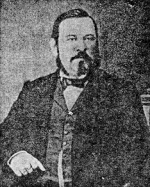 W
WNicolae Filimon was a Wallachian Romanian novelist and short-story writer, remembered as the author of the first Realist novel in Romanian literature, Ciocoii vechi şi noi, which was centered on the self-seeking figure Dinu Păturică. He was also a noted travel writer, folklorist, musician, and the first musical critic in his country.
 W
WOluwatobi Ayokunle Ibitoye better known as Tobi Ibitoye, is a Nigerian-born Romanian singer and songwriter from Bucharest. He was a finalist on 5th edition of The Voice of Romania and is now signed to an independent record label in Romania, Uninvited Artists. He is also the first and only Black man to have been listed on Forbes Romania top 30 under 30 list in the year 2016.. He moved to Romania at the age of fifteen in 2009 and delved into music right after his appearance on the TV show. His influences include genres such as pop, indie rock and electronic music
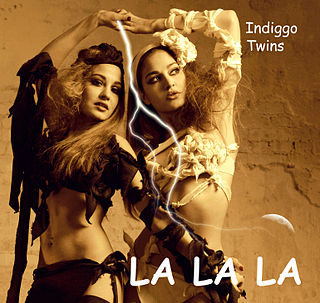 W
WIndiggo and the Indiggo Twins are the stage names for Gabriela Modorcea and Mihaela Modorcea, twin sisters and Romanian-American professional actresses, dancers, singers, and writers. They were born in Romania, received visas for extraordinary artistic abilities, became American citizens and live in New York City. They speak English, French, German and Romanian and sing in seven languages.
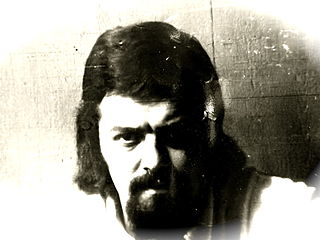 W
WAdrian Ivaniţchi is a Romanian folk musician and guitarist. He was one of the founding members of Coral, one of the first Romanian beat music groups. He played with several popular Romanian pop/rock groups in the 1960s, including Sideral and Sfinx.
 W
WGheorghe A. Lăzăreanu-Lăzurică or George Lăzurică, also known as Lăzărescu-Lăzurică or Lăzărică, was a leader of the Romani (Gypsy) community in Romania, also remembered for his support of Romania's interwar far-right. Originally a musician, he became active within the General Association of Gypsies in Romania, but broke away to establish the General Union of Roma in Romania. From September 1933 to May 1934, he was also a "Voivode of the Gypsies", recognized as such by various local tribes. He and his followers came to resent ethnic designation as "Gypsies", and pleaded for the usage of "Romanies". Lăzurică also tried to introduce the term Zgripți as a reference to the people's legendary ancestors.
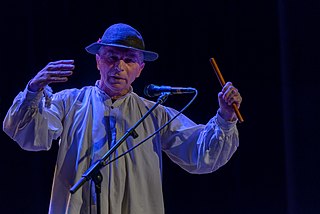 W
WGrigore Leșe is a Romanian musician.
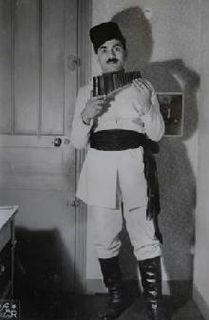 W
WFănică Luca was a Romani-Romanian musician and a Romanin pan pipe (nai) virtuoso, who was the first to make this instrument popular outside his own country.
 W
WConstantin Marin was a Romanian award-winning musician, conductor and composer.
 W
WTeo Milea is a Romanian pianist and composer. He lives in Toronto, Ontario, Canada.
 W
WGavriil Musicescu was a Romanian composer, conductor and musicologist, father of the pianist and musical pedagogue Florica Musicescu.
 W
WMariana Preda is a Romanian pan flute musician, actress and film director. She came into prominence after starring in the multi awarded short film Doina. As a musician, she is known for her album Sunrise published by the label MAP in Italy in 2013 and for having many concerts around the world.
 W
WValeriu (Vali) Sterian was a Romanian folk and rock musician.
 W
WTristan Tzara was a Romanian and French avant-garde poet, essayist and performance artist. Also active as a journalist, playwright, literary and art critic, composer and film director, he was known best for being one of the founders and central figures of the anti-establishment Dada movement. Under the influence of Adrian Maniu, the adolescent Tzara became interested in Symbolism and co-founded the magazine Simbolul with Ion Vinea and painter Marcel Janco. During World War I, after briefly collaborating on Vinea's Chemarea, he joined Janco in Switzerland. There, Tzara's shows at the Cabaret Voltaire and Zunfthaus zur Waag, as well as his poetry and art manifestos, became a main feature of early Dadaism. His work represented Dada's nihilistic side, in contrast with the more moderate approach favored by Hugo Ball.
 W
WA. G. Weinberger is a blues/jazz/rock guitar player, lapsteel guitarist, bandleader, vocalist and record producer, born in Romania.
 W
WGheorghe Zamfir is a Romanian nai musician.